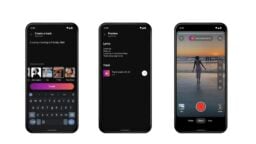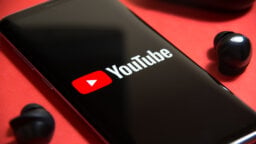Paid-for views on YouTube have become a controversial topic in the industry this year, ever since Bloomberg pointed out the curious case of Indian rapper BadShah in July.
At that time, Sony Music India claimed that BadShah had broken the all-time 24 hour record for plays of a music video on YouTube for his track Paagal (pictured). On July 11, Sony said the video had racked up 75m plays within its first 24 hours – a million ahead of the previous fastest-streaming track of all time on the service, Boy With Luv by BTS feat Halsey.
But then something odd happened: YouTube, usually very keen to trumpet record breakers on its service, kept quiet. It did so, it transpired, because a significant proportion of BadShah’s views had been paid for. Or, more accurately, pay-assisted.
Following Bloomberg’s expose, Rolling Stone ran an in-depth piece explaining one technique record labels and artists were using to boost their play-counts via YouTube’s TrueView tool.
TrueView allows anyone to pay money to have a piece of YouTube content auto-play before a user’s chosen video. If user then interacts with that TrueView pre-roll, or watches it for a certain number of seconds, it can count as a legitimate ‘view’ on its source YouTube channel.
On Friday, July 12, BadShah admitted using paid promotion tools to achieve his record YouTube view-count. In an Instagram video, he argued that “what some people call fake views are not fake views… they are google ad words”.
He then suggested that some of the world’s biggest artists were using the same tools to juice their play-counts: “You think artists abroad don’t get paid promotions? Are you so naive? I don’t want to be the one with the highest views, but someone has to be. I tried and I did it. Get over it.”

Today (September 13), YouTube has announced it’s cracking down on exactly this kind of practice.
For starters, any paid for/assisted view on YouTube will now no longer be counted towards the platform’s own Music Charts – something which YouTube says pulls it line with the official charting policy of US industry monitor Billboard/Nielsen.
And, to make its policy as regards record-breaking videos very clear, YouTube has also officially announced that paid for/assisted views will never again count towards its 24-hour record debut metrics.
“YouTube Music Charts have become an indispensable source for the industry and the most accurate place for measuring the popularity of music listening behavior happening on the world’s largest music platform,” said YouTube in a statement.
“In an effort to provide more transparency to the industry and align with the policies of official charting companies such as Billboard and Nielsen, we are no longer counting paid advertising views on YouTube in the YouTube Music Charts calculation.”
“In an effort to provide more transparency to the industry and align with the policies of official charting companies such as Billboard and Nielsen, we are no longer counting paid advertising views on YouTube in the YouTube Music Charts calculation. Artists will now be ranked based on view counts from organic plays.”
It adds: “Over the last few years, fans, artists, and their teams have touted the number of views a video receives on YouTube within the first 24 hours as the definitive representation of its instant cultural impact. It’s a great honor and one we take very seriously.
“As we look to maintain consistency and credibility across our platform, we’ve made some necessary revisions to our methodology for reporting 24-hour debut records.”
Continued YouTube: “Our goal is to ensure YouTube remains a place where all artists are accurately recognized and celebrated for achieving success and milestones. Videos eligible for YouTube’s 24-hour debut record are those with the highest views from organic sources within the first 24 hours of the video’s public release. This includes direct links to the video, search results, external sites that embed the video and YouTube features like the homepage, watch next and Trending.
“Video advertising is an effective way to reach specific audiences with a song debut, but paid advertising views on YouTube will no longer be considered when looking at a 24-hour record debut. The changes will not impact YouTube’s existing 24-hour debut record holders.
“Staying true to YouTube’s overall mission of giving everyone a voice and showing them the world, we want to celebrate all artist achievements on YouTube as determined by their global fans. It’s the artists and fans that have made YouTube the best and most accurate measure of the world’s listening tastes and we intend on keeping it that way.”Music Business Worldwide





